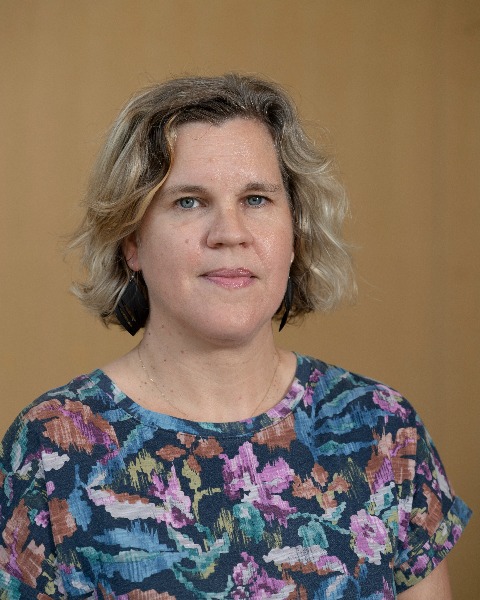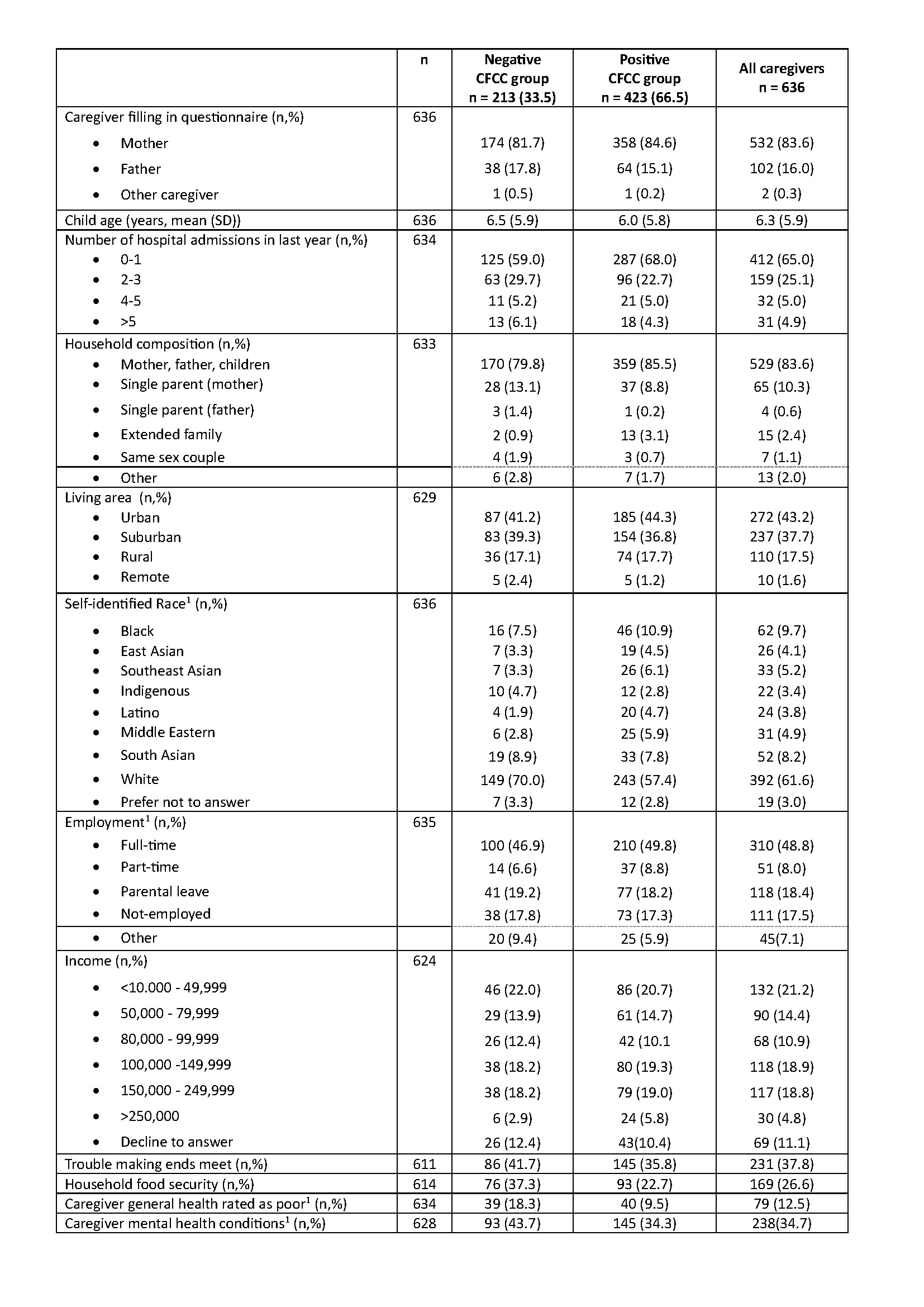Health Equity/Social Determinants of Health 9
Session: Health Equity/Social Determinants of Health 9
184 - Healthcare Inequities and Child- and Family-centred Care Experienced by Caregivers During Their Child's Hospital Admission; a Cross-Sectional Study Design in Three Tertiary Care Hospitals in Canada.
Monday, April 28, 2025
7:00am - 9:15am HST
Publication Number: 184.5158
Andrea Evans, University of Ottawa Faculty of Medicine, Ottawa, ON, Canada; Gita Wahi, McMaster University, Hamilton, ON, Canada; Carolyn E. Beck, The Hospital for Sick Children, Toronto, ON, Canada; Anne E. Fuller, McMaster University, Hamilton, ON, Canada; Maitreya Coffey, University of Toronto Temerty Faculty of Medicine, Toronto, ON, Canada; Samantha J.. Anthony, The Hospital for Sick Children, Toronto, ON, Canada; Rachael B. Devenyi, The Hospital for Sick Children, Vancouver, BC, Canada; Sarah Pol, The Hospital for Sick Children, Toronto, ON, Canada; Marion Knutson, The Hospital for Sick Children, Penetanguishene, ON, Canada; Jordyn Manis, The Hospital for Sick Children, Toronto, ON, Canada; Eunjung Na, Children's Hospital of Eastern Ontario, Ottawa, ON, Canada; Chiara M. Fricano, McMaster University Michael G. DeGroote School of Medicine, Hamilton, ON, Canada; Heather M. MacDonnell, Children's Hospital of Eastern Ontario, University of Ottawa, Ottawa, ON, Canada; Birken S. Catherine, Sickkids, toronto, ON, Canada; Meta van den Heuvel, The Hospital for Sick Children, Toronto, ON, Canada

Meta van den Heuvel, MD PhD (she/her/hers)
Associate Professor
Hospital for Sick Children
Toronto, Ontario, Canada
Presenting Author(s)
Background: Healthcare equity is defined as providing healthcare that does not vary in quality because of social and economic characteristics. Child- and family-centred care (CFCC) recognizes families and children as essential partners in children's health care; core concepts include respect and dignity, information sharing, participation and collaboration. It is unclear if social and economic inequities influence CFCC in pediatric hospital care.
Objective: Our study compared healthcare inequities between caregivers who had negative versus positive experiences of CFCC.
Design/Methods: A prospective cross-sectional study design was used. Caregivers of children 0-18 years of age admitted to general pediatric units of the three largest pediatric hospitals in Ontario, Canada were asked to complete a survey during or immediately following their child's hospital admission between June 2023 and August 2024. Four components of healthcare inequities were examined: (1) hospital-based food insecurity (2) financial and logistical barriers during admission (3) language barriers and (4) experiences of marginalization. CFCC was measured with the Perceptions of Family Centred Care Instrument. The survey was translated in six languages and electronically distributed using REDCap. The CFCC total score had a negatively skewed distribution and participants in the lowest tertile were categorized has having "negative experiences of CFCC" and the remainder were categorized in the "positive CFCC" group. Caregiver social and economic characteristics were analysed with descriptive statistics. Differences in healthcare inequities between the two groups were calculated with independent t-test / Mann-Whitney U test or Chi-Square test.
Results: Participants included 636 caregivers; 532 (83.6% ) mothers; 392 (61.6%) self-identified as white; 310 (48.8%) were employed full-time and 272 (43.2%) lived in an urban area. 169 (26.6) caregivers experienced household food insecurity and 231 (37.8%) had difficulties making ends meet (Table 1). There was a significance difference between healthcare inequities in the "negative CFCC" compared to the "positive CFCC" group. Caregivers in the "negative CFCC" group had significantly higher financial, logistical and language barriers and more experiences of marginalization (p < 0.001) and higher rates of being hungry during hospital admission (p=0.06) (Table 2).
Conclusion(s): Caregivers who experienced healthcare inequities indicated negative experiences of CFCC. Healthcare inequities experienced by caregivers during hospital admission need to be reduced in order to improve CFCC and pediatric hospital outcomes.
Table 1: Sociodemographic characteristics of caregivers who experienced negative and positive Child-and Family Centred Care (CFCC)
 (1) Of caregivers filling out the survey.
(1) Of caregivers filling out the survey.Table 2: Comparison of healthcare inequities between caregivers who experienced negative- and positive Child-and Family Centred Care (CFCC)
.jpg) Differences between the negative and the positive CFCC group were calculated with Chi-Square test (1); independent t-test (2) and Mann-Whitney U Test (3).
Differences between the negative and the positive CFCC group were calculated with Chi-Square test (1); independent t-test (2) and Mann-Whitney U Test (3).Table 1: Sociodemographic characteristics of caregivers who experienced negative and positive Child-and Family Centred Care (CFCC)
 (1) Of caregivers filling out the survey.
(1) Of caregivers filling out the survey.Table 2: Comparison of healthcare inequities between caregivers who experienced negative- and positive Child-and Family Centred Care (CFCC)
.jpg) Differences between the negative and the positive CFCC group were calculated with Chi-Square test (1); independent t-test (2) and Mann-Whitney U Test (3).
Differences between the negative and the positive CFCC group were calculated with Chi-Square test (1); independent t-test (2) and Mann-Whitney U Test (3).
